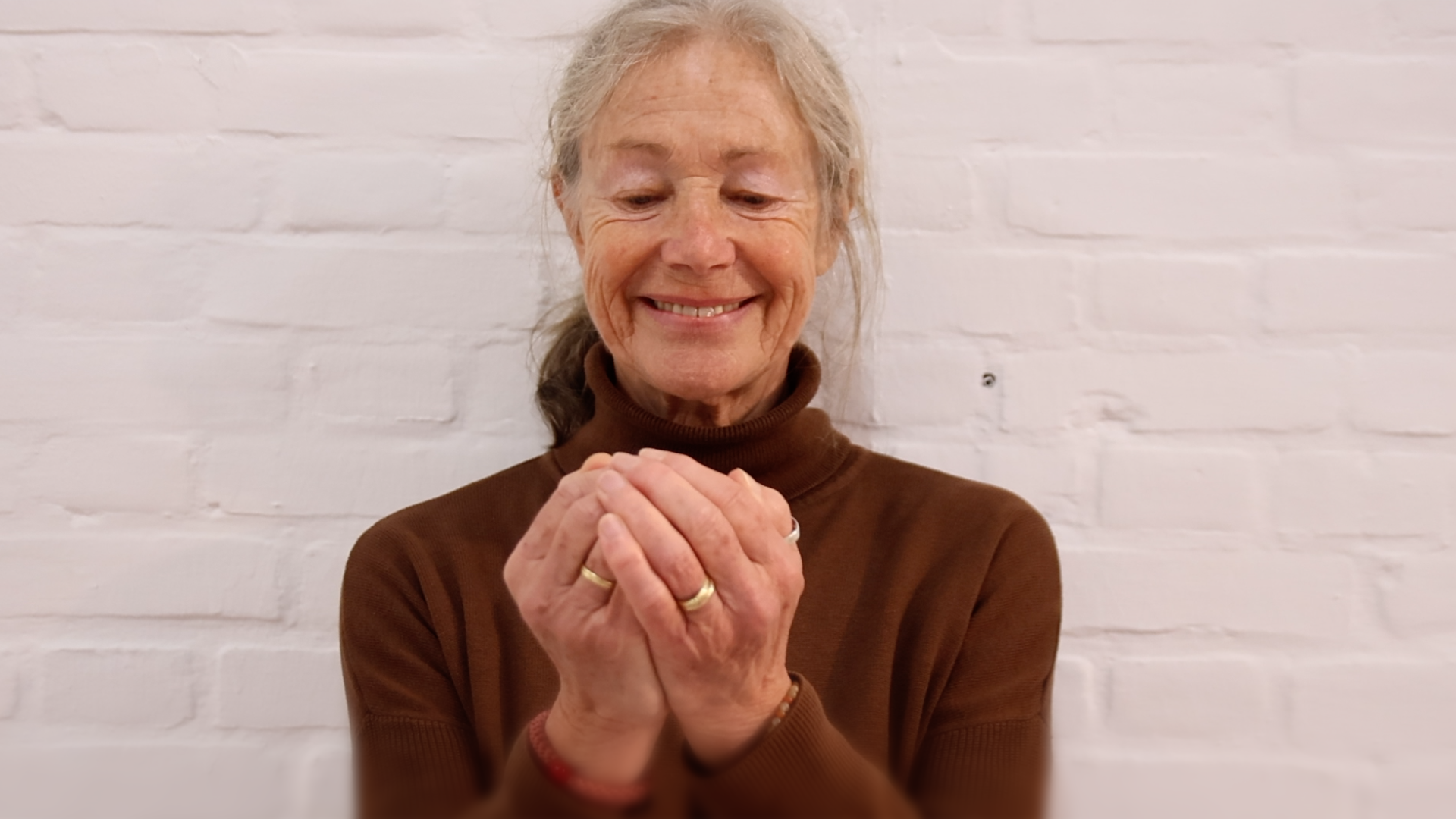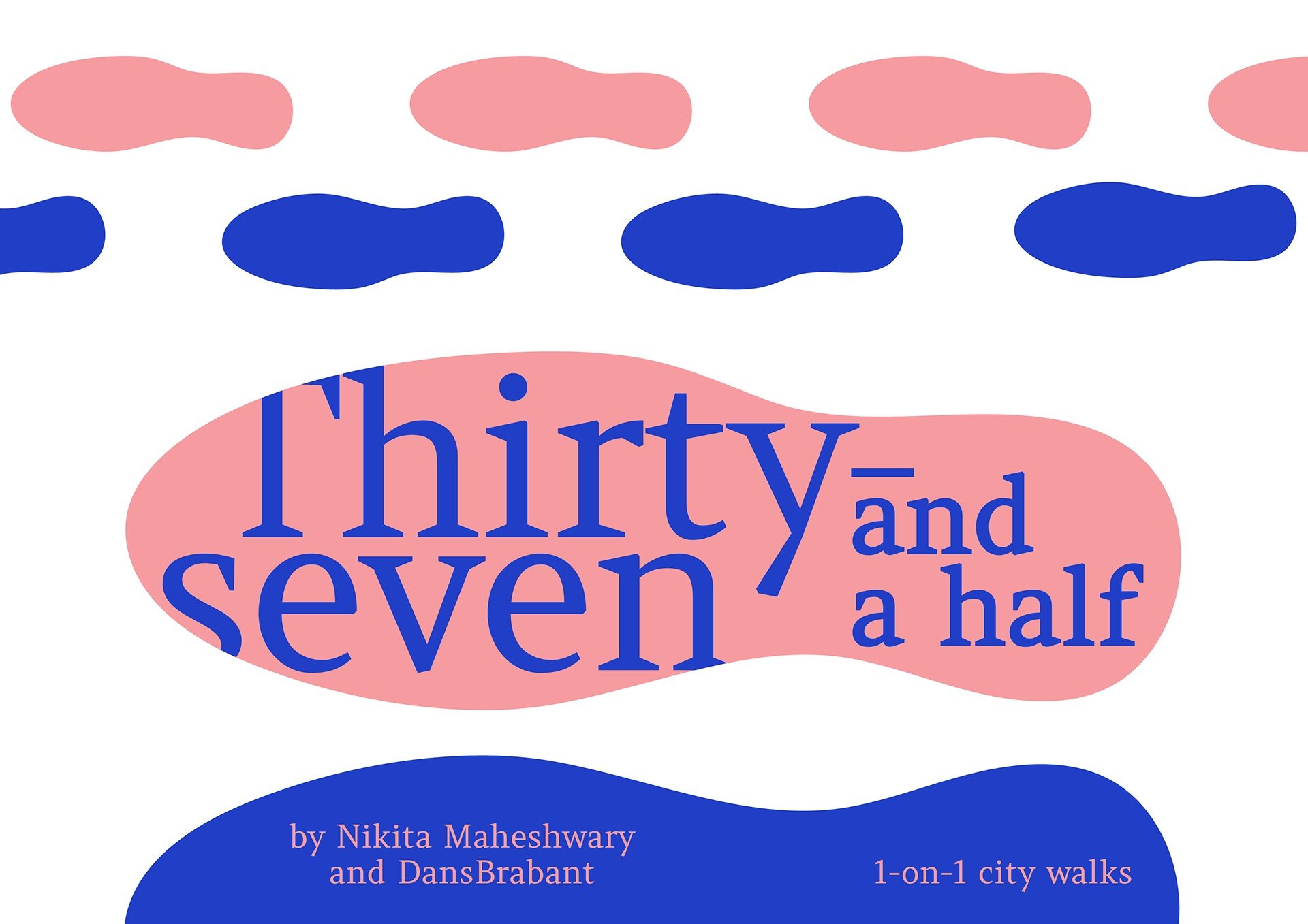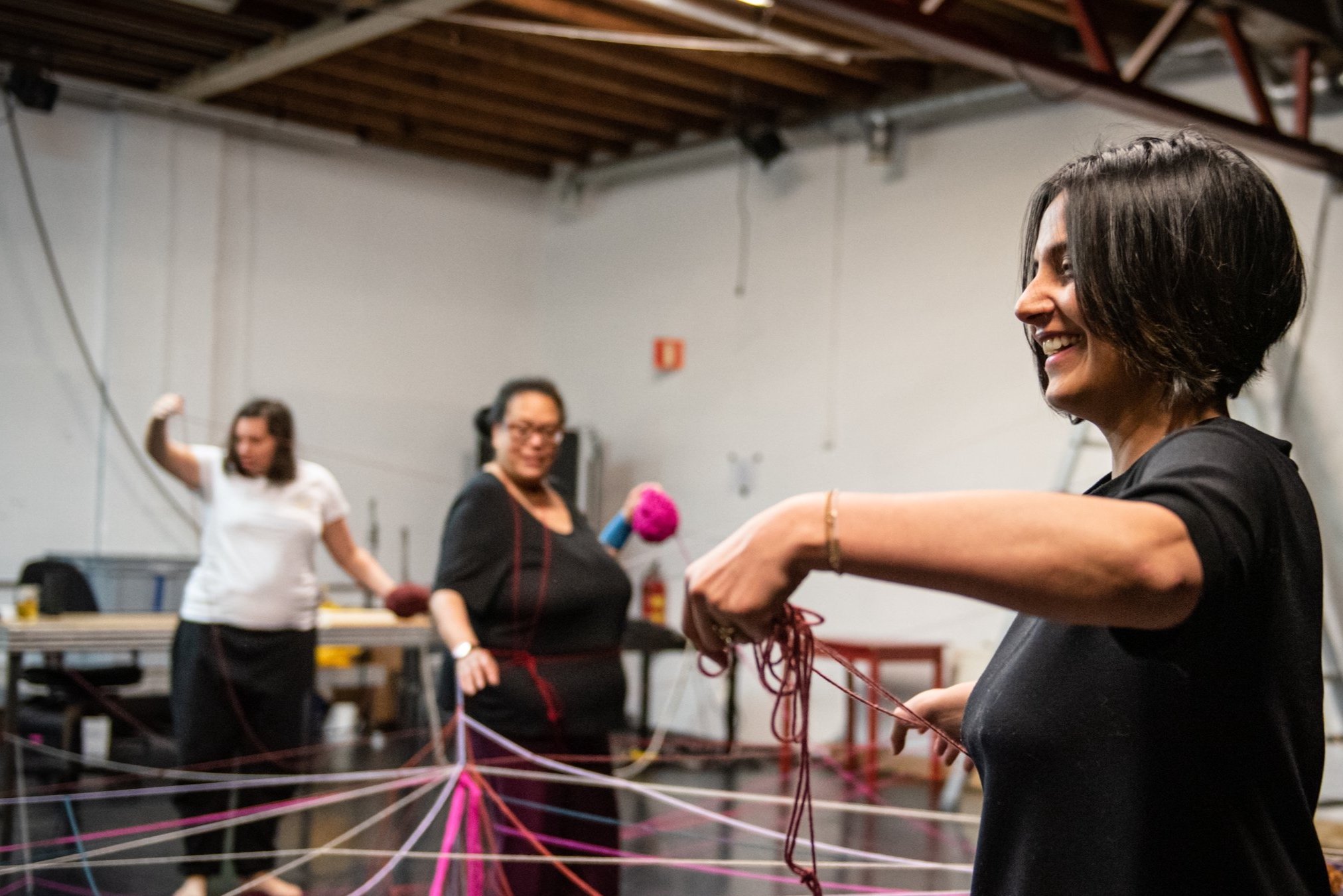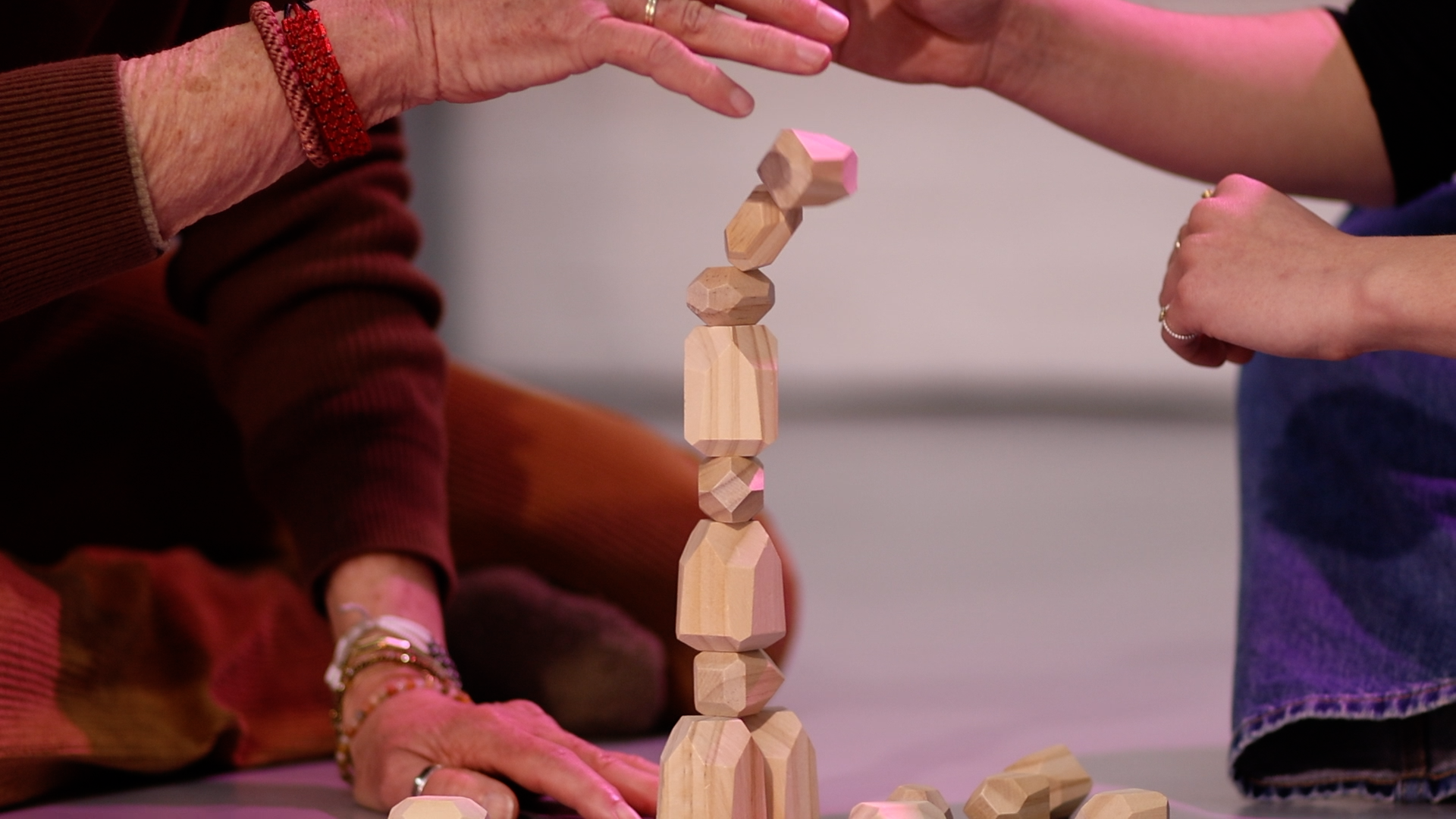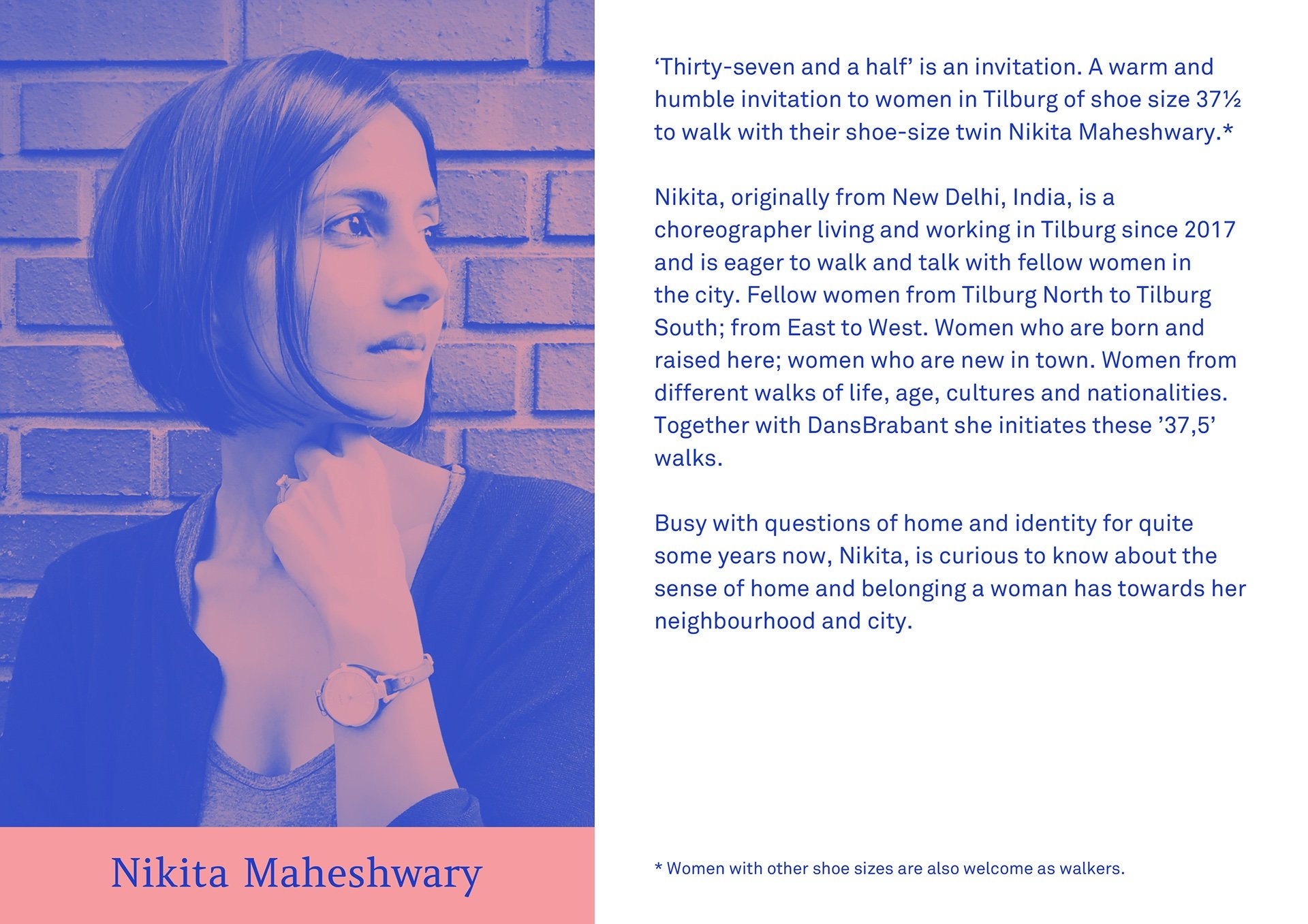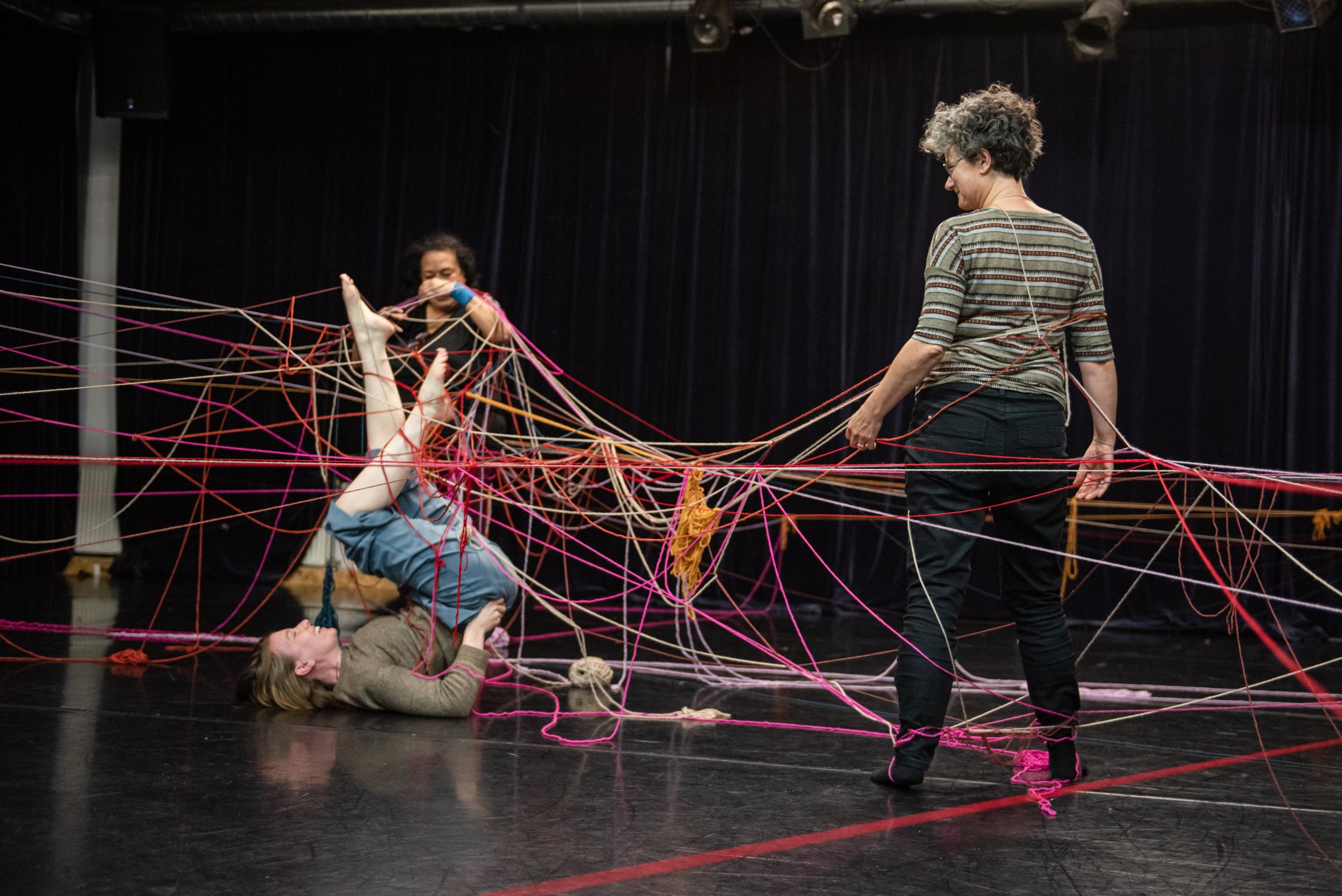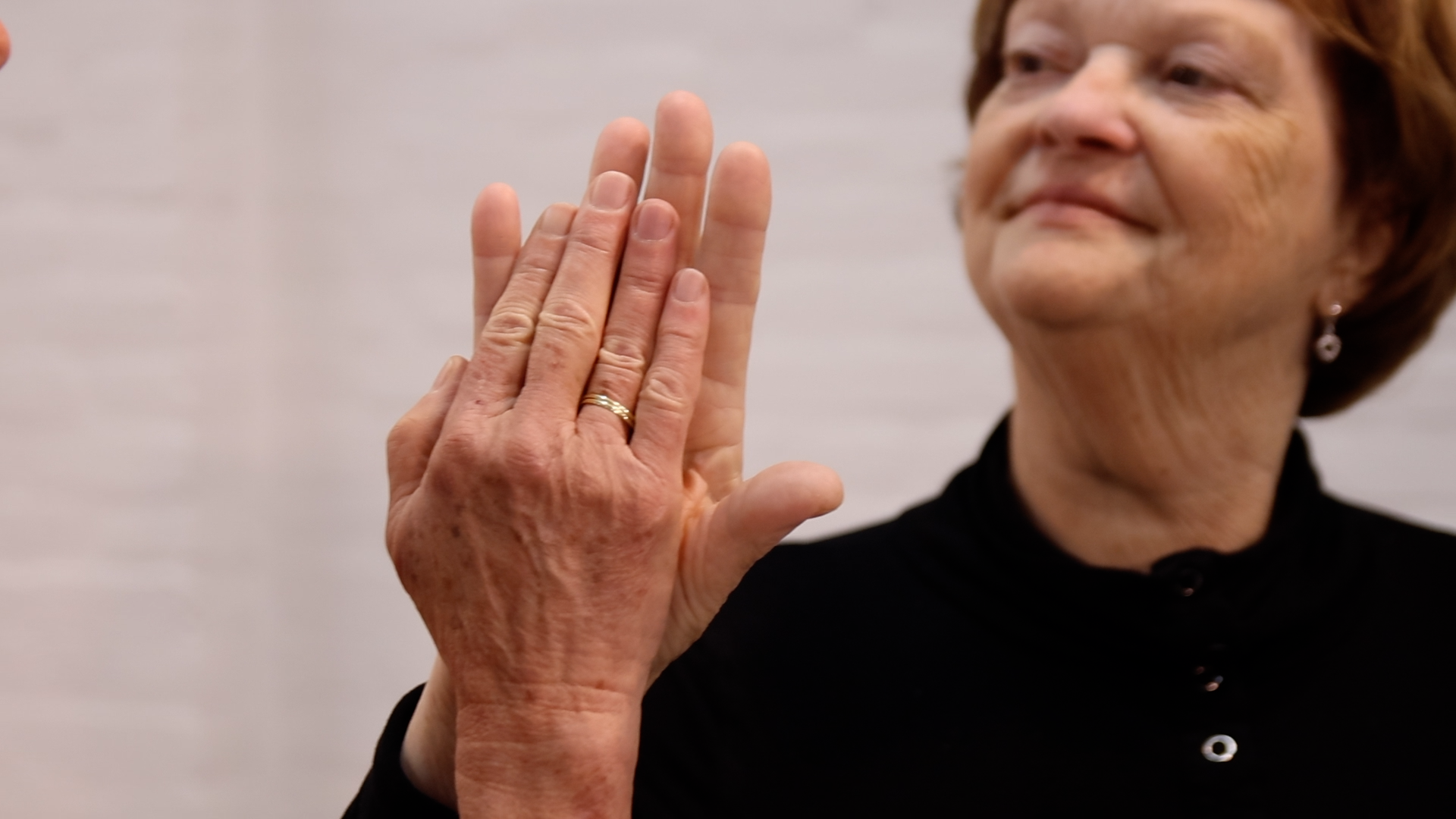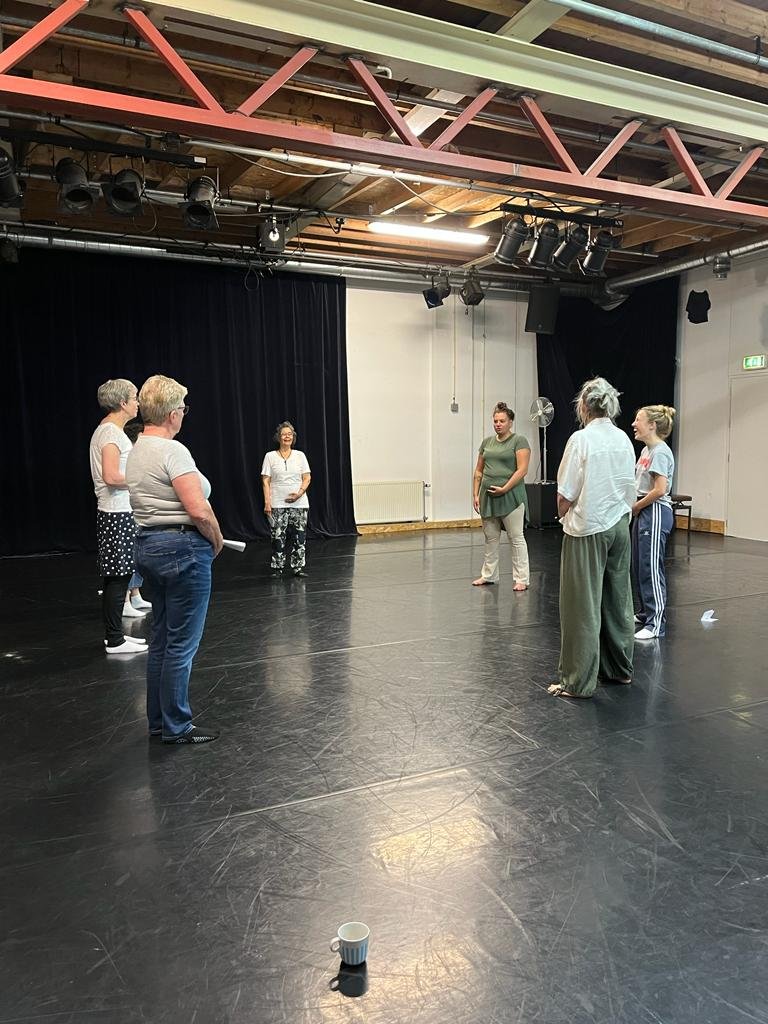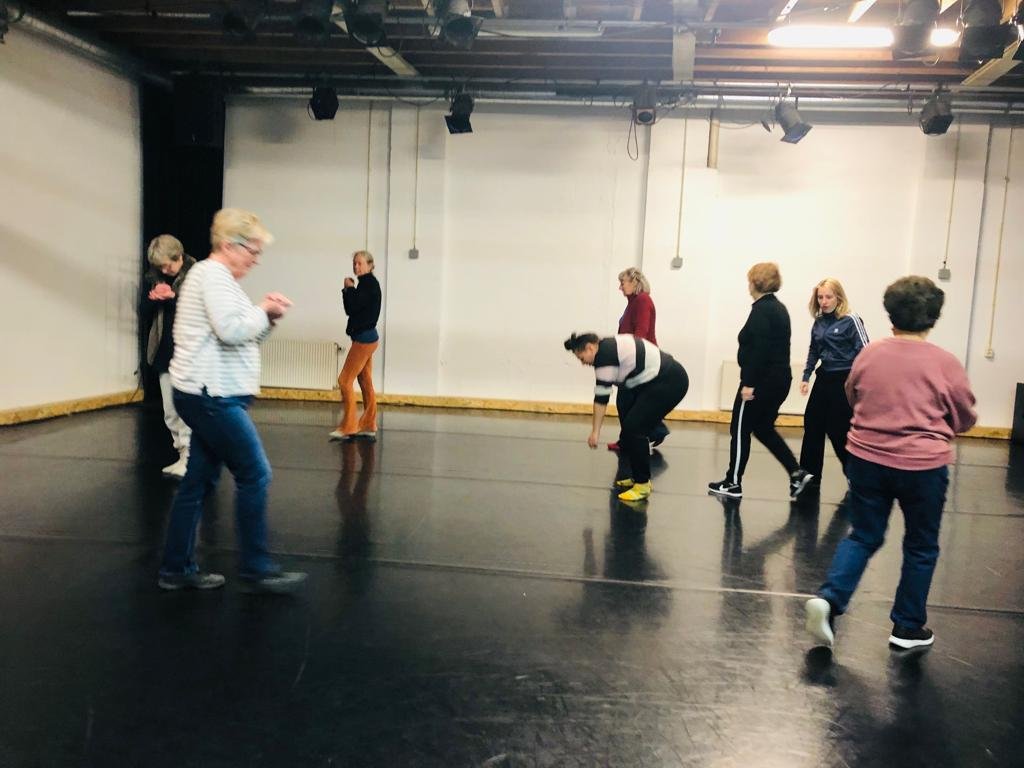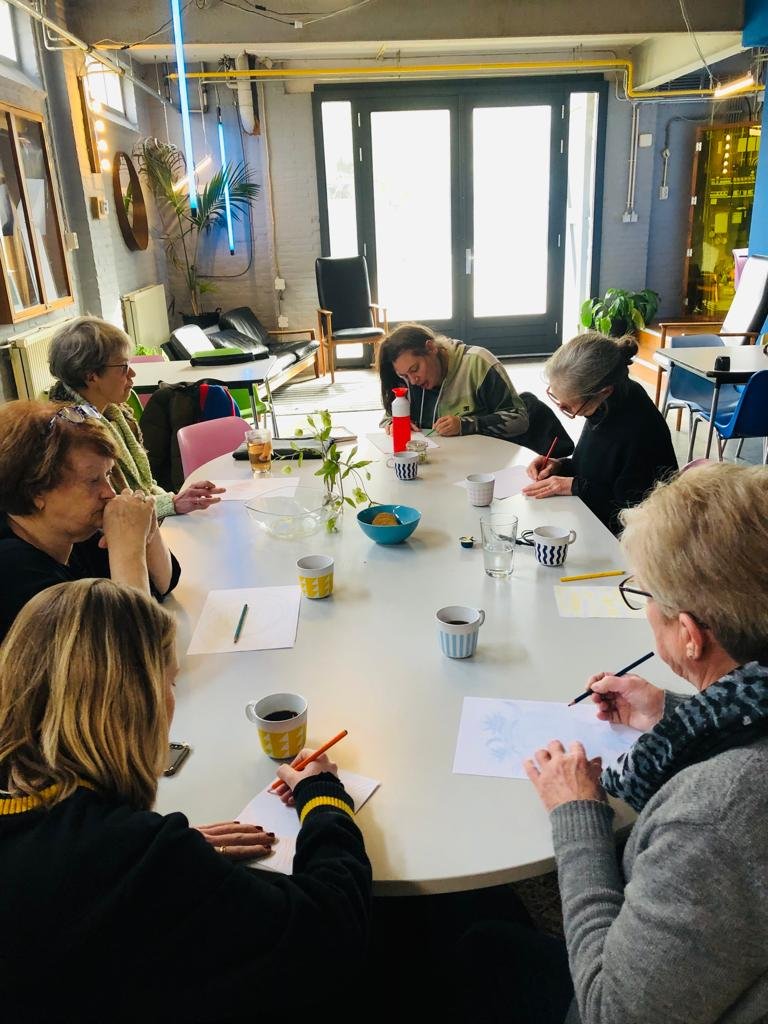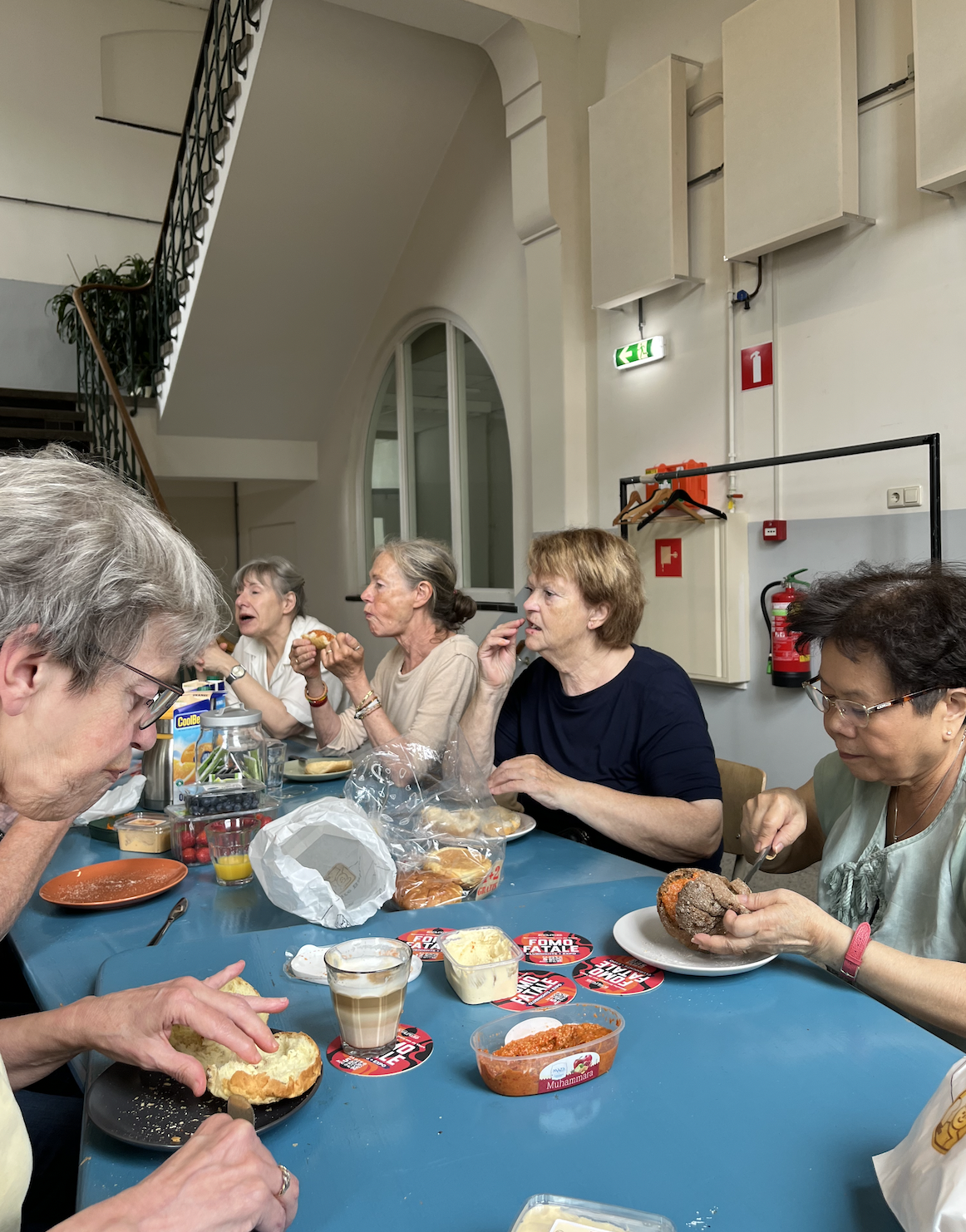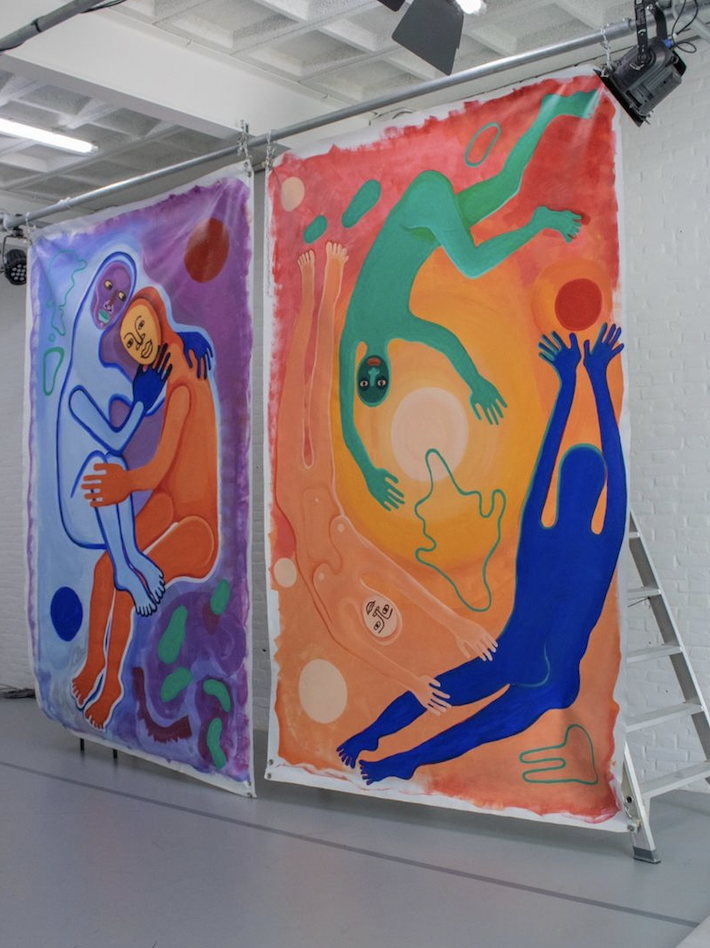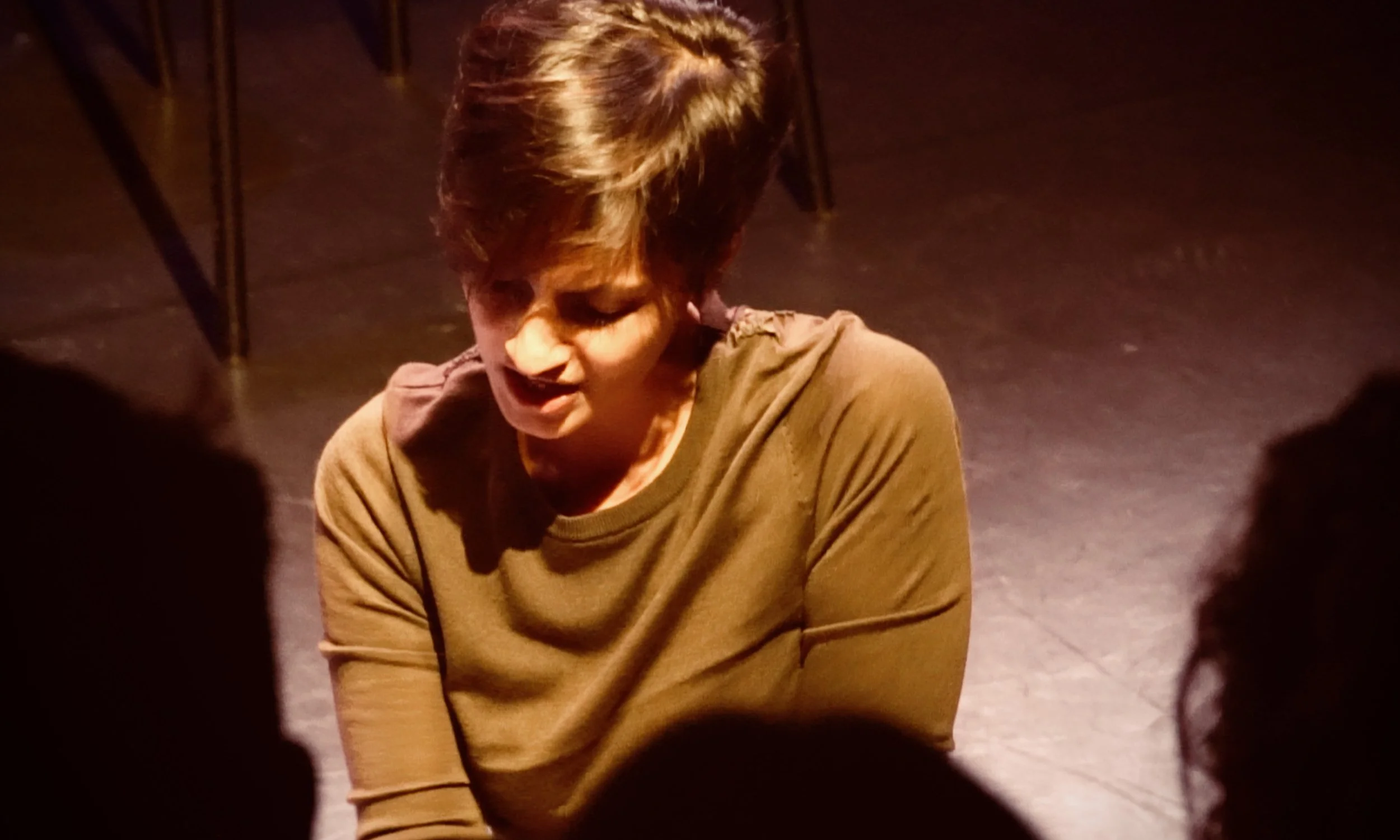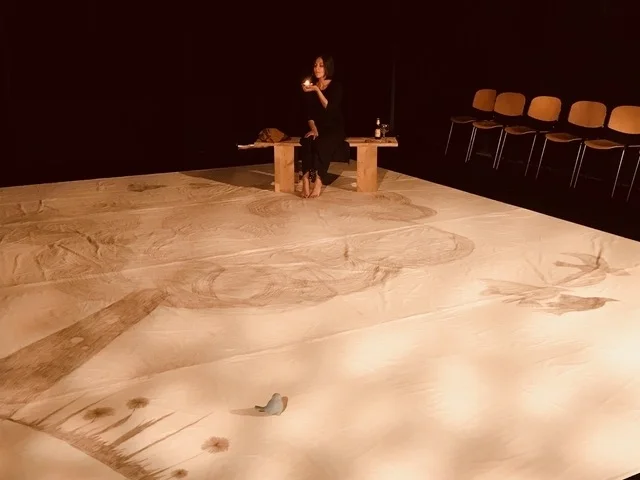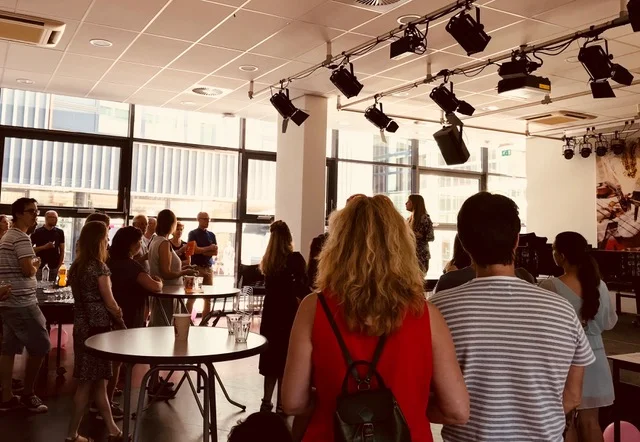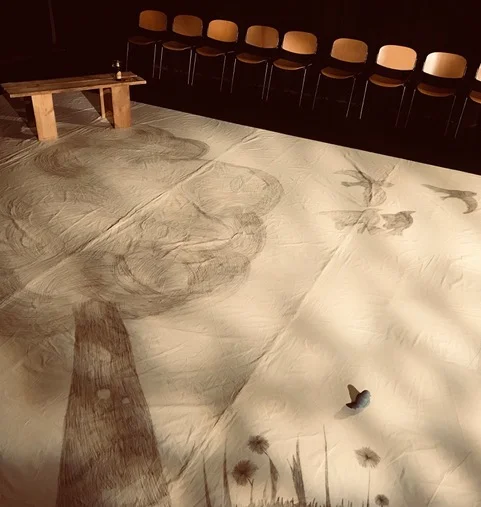As part of the European project 'Performing Gender: Dancing in Your Shoes' choreographer Nikita Maheshwary started in January 2022 with one-on-one walks with 15 women from different neighbourhoods of Tilburg. Under the project 'Thirty Seven and a Half' with DansBrabant, this developed over the months from a community of 19 women to the current core group of 9 Tilburg women.
The women, coming from different walks of life, upbringings, generations and cultures, were first concerned with the question ‘where do we come from?’ while reflecting together on overarching themes of care, womanhood, freedom & limitations, and what it means to be a community. In the second phase of the project, the urgency slowly began to shift to 'where are we going together' and 'what do we want to leave behind'.
The women show the result in the production ‘Residu(e): What we leave behind’; a poetic dreamscape about a shared and multicolored future. The colorful collection of stories is interwoven with scenes of small triumphant actions. A mix of movement, spoken word and multimedia, the performance is performed by a cast of women from varied age groups, abilities and physical capacities.
CREDITS
Concept & Choreography: Nikita Maheshwary
Project Coordinator/Community Developer: Lotte van Oudheusden
Music: Arthur Music - Arthur van der Kuip
Artwork: Nikè Marchand
Co-makers and performers: Felmy Laming | Monique van Beers | José van Rijswijk | Derya Demiroglu | Alie Pigmans | Judith Landman | Mieke de Roo | Harjanti Bors | Marianne Möller
Photography: Tessel Schmidt and William van der Voort
Videography: Tessel Schmidt
Premiere:
Theaterfestival Boulevard, 's-Hertogenbosch | 8 August 2023
Performed at:
Festival GLoBe, Tilburg | 27 August 2023 |
Theatre De Nieuwe Vorst, Tilburg | 22 September 2023
City of Women Contemporary Arts Festival, Ljubljana | 10 October 2023
Me&You: In a Dialogue is a collective reading performance in which the audience members sit together to read series of letters addressed by me to you. Each person has a choice to select one of the four hyperwords in each letter progressing them to the next, to construct their own narrative.
The letters create multiple stories interweaving biography, autobiography, comment, critique, rebuke, lament, angst; unfolding untold accounts of inequality in cultural participation, censorship, capitalism & tribal nationalism, religion & morality, and the commodification of the arts.
Concept & Script: Nikita Maheshwary
Performers: Audience members + Nikita
Durational Performance
Performed at:
Come Together, Frascati Theatre, Amsterdam, NL | 5 March 2020 (Premiere)
Interazioni Festival, Rome, Italy | 30 September 2022
THIRD Annual Forum, DAS Graduate School, Amsterdam, NL | 29 October 2022
Curation Discrete, Gessnerallee, Zurich, Switzerland | 23 March 2023
UMRAO&ME

Umrao&Me is an innovative lecture performance in which the artist shares personal letters written by her to Umrao Jaan - the legendary 19th century ‘tawaif’ performer (courtesan) from the then undivided India. De-exoticizing traditional eastern narratives and deconstructing variegated expressions of broad prejudices; the lecture unpacks plural accounts of marginalisation, effects of colonialism, patriarchal society, body shaming, male gaze, morality, censorship and politics in the arts.
Script & Performance: Nikita Maheshwary
Dramaturgy: Paul de Bruyne
Design, Photography & Videography: Chirag Bhasin
Duration: 40 minutes
Performed at:
Korzo Theatre, The Hague, NL | 21 October 2018 (Dutch premiere)
Ashoka University, India | 13 November 2018 (Indian premiere)
Shiv Nadar University, India | 15 November 2018
Moving Futures Festival, NL | 11 May 2019
CC Amstel, Amsterdam, NL | 14 June 2019
CC Amstel, Amsterdam, NL | 15 June 2019
Artist’s Note
The lecture performance invites the audience to reconstruct the viewership of the nautch girl away from the colonial imagination as documented through essentialist images of an east that were both evil & servile, and also, reflect upon the highly selective ways of the creation of oriental archetypes through which the ’otherness' of eastern narratives could be readily identified and adjudged to systemic exclusion from the high art performance discourse.
During my research, I poured over texts on tawaif performers, geishas, kabuki, cabaret dancers & their marginalized identity, studied female characters in western nude paintings and read & conducted interviews with current-day female performers. Parallel to this, I was interested in finding ways to connect how socioeconomic incidents such as the emergence of female voting rights, introduction of the contraceptive pill, institutionalization of dance, the four waves of feminism, independence of colonies, notions of nationalism, populist culture, inequality in cultural participation, the recent #metoo phenomenon and the advent of extreme right-wing governments across the world, have on the female body and especially on the body of the female performer.
These impressions led me to craft a self-reflective voice, in the form of letters exchanged between a contemporary female performer (me) and the past custodian of dance - the courtesan (Umrao), to delve deeper into the discourse on the ‘body of the female performer’ that is persistently contested as a site of entertainment, a site of work, pleasure, abuse, and stigma. And also, to critically examine what it means to be an artist and what kind of art and narratives we, as society and institutions, privilege over others.
WHILE WE WALK

Concept & Performance: Nikita Maheshwary
Dramaturgy: Paul De Bruyne
Duration: 20 mins
While We Walk (2017) is an ongoing series of ‘walking conversations’ with people from different ages, cultures, classes, nationalities and professions. While we walk - we talk about home, belonging and the sense of ownership citizens have towards their cities and public space. To date, Nikita has had the joy of walking&talking with women from Utrecht, Tilburg, Sofia and New Delhi.
Over the years, the collective knowledge and impressions of these walks have contributed towards multiple aesthetic manifestations - writings, photoessays, a soundscape, a performance and an installation. Each time the sharing of memories, stories and anecdotes have revealed the different relationships people have with the city they live in.
Artist’s Note
The process of creating this performance became a means to access, excavate, extract and present the myriad of impressions I collected over the months. The excerpts of the ‘walking conversations’ served as a starting point. All urgencies, desires, knowledge, emotions and expressions, stemmed from it. These were then compressed into layers to form the soundscape, script and visuals for the performance work.
TUJHKO BANAYA GAYA
HAI MERE LIYE

Tujhko Banaya Gaya Hai Mere Liye (You have been made for Me) investigates the representation of women in Bollywood and Indian pop culture. It questions their objectification, the handed down warped codes of romance and the glorification of sexism in the mainstream that masquerades itself, sometimes as an innocent joke or gets etched in our heads as a catchy item song.
Set on the timeless, iconic romantic nazam from the 1976 Bollywood movie ‘Kabhi-Kabhi’, the piece borrows the movement vocabulary from the popular cultural image of a female and male body. It attempts to capture the varied gender equations, the society’s innate permissiveness towards the quintessential ‘chedkhani’ or eve-teasing and how this collective tolerance propagates and contributes to gender-related violence.
Concept & Direction: Nikita Maheshwary
Process Collaborators & Performers: Mahesh Saini & Nikita Maheshwary
Duration: 20 minutes
Performed at:
NIV Art Gallery, New Delhi | 4 August 2017
Italian Culture Center, New Delhi | 5 August 2017
Gati Dance Forum, New Delhi | 6 August 2017
Studio Safdar, New Delhi | 11 August 2017
Studio47, New Delhi | 2 September 2017

